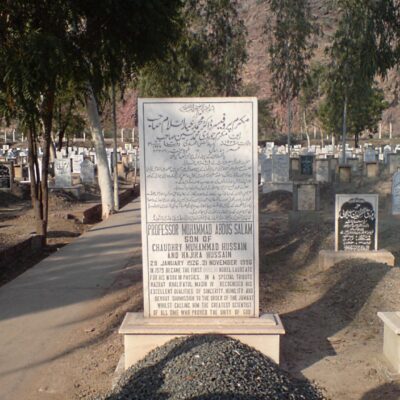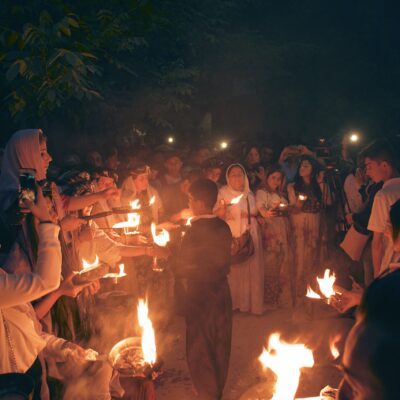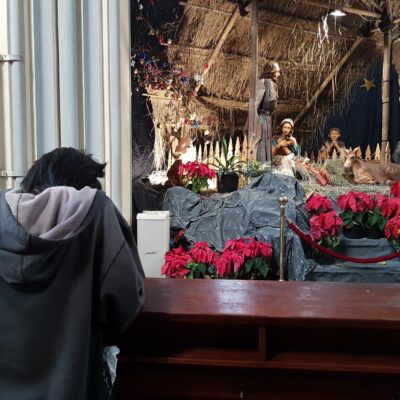This article examines the taklik clauses included in Muslim marriage contracts in Singapore and their broader implications for minority and gender rights within a secular context.
While civil marriages are governed by the Women’s Charter, Muslim marriages fall under the Administration of Muslim Law Act (AMLA), reflecting Singapore’s legal pluralism. Standardised taklik clauses are intended to protect Muslim wives, but often reinforce traditional spousal roles based on financial dependence and obedience.
The lack of awareness of the impact of the clauses, limited legal literacy, and inability to personalise the clauses constrain Muslim women’s agency and marital equity. The article situates these issues within debates on accommodating minority rights, legal autonomy, and gender justice.
I argue for a rights-based re-evaluation of taklik clauses as part of broader efforts to align Muslim personal law with contemporary understandings of gender equality and citizenship in a secular, multi-religious society.
Standardised taklik clauses: Reinforcing traditional gender roles
Muslims in Singapore find themselves in a unique legal position among Singaporeans when it comes to the marriage application process. Muslim couples are required to register their marriages under the Registry of Muslim Marriages and their marriage contract includes a list of special conditions commonly known as taklik clauses.
This set of predetermined conditional oaths is printed on the back of the marriage contract and pronounced by the husband as part of the solemnisation ceremony. Section 48 of the Administration of Muslim Law Act states that a written taklik can be made during or after the marriage. However, making amendments to the standard taklik is not a widely known or common practice among Muslims in Singapore.
Generally seen as one of the many legal tools to protect women, the standardised taklik allows a wife to exit a marriage if her husband is proven to be guilty of violating any of the specified conditions. This means that a wife can initiate a divorce application against her husband if he breaches any of the taklik conditions in three distinct situations:
- He abandons her for four months or longer; or
- He fails to provide financial maintenance while she remains obedient to him; or
- He inflicts physical injury, damages her property or causes her loss of self-respect.
Here, I focus on the second clause regarding a husband’s responsibility to provide financial maintenance in exchange for his wife’s obedience to him. This interpretation is based on a textualist or literal understanding of the Qur’anic verse 4:34, which suggests that husbands have the obligation to support their wives financially and that wives have the obligation to obey their husbands, which may include managing various domestic and/or caregiving duties. It should be noted that this continues to be a topic of vigorous discussion within the Islamic interpretive tradition, although according to the majority of Muslim jurists, religious law does not impose domestic labour on wives. Despite the extensive and ongoing debates concerning the extent of provision and obedience between couples, the general understanding among textualists indicates that a husband continues to carry the obligation to financially support his wife as long as she remains ‘obedient’ to him.
This clause, along with the said understanding, I argue, does not align well with the promotion of more equitable partnerships in marriages, as advocated by various segments of the community and society at large. I focus on dual-income households to argue for a departure from the traditional provider-homemaker framework because shared financial responsibility clearly calls for a more equitable division of unpaid labour and shared decision-making. (My argument could also potentially prompt further analysis of the ‘logic’ of obedience for financial security, especially in situations where wives provide unpaid housework and care-giving labour, but that is not my focus here.)
Shifts in public sentiment towards more equitable gender roles
In recent decades, there have been shifts in public sentiment as well as significant changes in the emphasis observed in religious sermons and guidelines, towards the notion of shared and equitable roles in the household. In line with the proposed direction in the White Paper on Singapore Women’s Development, some Singaporean Malay-Muslim men have indicated their aspirations to take on a more equitable share of family and parenting responsibilities. But despite the apparent developments in public perception and religious discourse regarding spousal roles, the taklik clauses remain unchanged, reinforcing traditional gender roles, even in dual-income households.
The standardised taklik clauses can sometimes be beneficial in safeguarding the financial welfare of Muslim wives who are dependent on their husbands for financial security, among other things. However, the reality for many Muslim women in Singapore today has long deviated from such expectations.
Beyond financial concerns, the dynamic aspirations of Muslim women in Singapore are not comprehensively captured by current legislation. While Section 46 of the Women’s Charter promotes gender equality in the running of the matrimonial household and in safeguarding the interests of the marriage, Sections 48 and 51 of the Administration of Muslim Law Act contradict the Women’s Charter’s provision and continue to impose a legal obligation on husbands to provide financial support for their wives. This obligation, which burdens the husband financially, reinforces traditional gender roles within Muslim marriages and is inconsistent with Article 16 of the Convention on the Elimination of All Forms of Discrimination against Women (CEDAW).
Despite significant changes in the lived realities of Muslims in Singapore, the narrative within these taklik clauses contradicts local and global promotion of gender justice and egalitarian partnerships in marriage. For example, Morocco’s revised Personal Status Code (Moudawana) defines marriage based on equality between spouses. Established two decades ago, the Moudawana moves away from the maintenance-for-obedience equation, setting an example for legal reform that reconciles Islamic principles with modern realities. Similarly, Muslim women in Western nations possess equal matrimonial legal rights and responsibilities with men (even if these are not necessarily reflected in reality), in addition to having the same rights as other women under the civil law. Despite Singapore being ranked 8th globally and 1st in the Asia Pacific for having a low level of gender inequality, these taklik clauses appear to contradict the nation’s progress in women’s development.
Implementation of the Administration of Muslim Law Act: (Dis)empowering women as legal agents
Singapore’s ‘separate but equal’ argument in relation to the plural legal system for marriage and family matters is not without contestation. As dual-income households become increasingly common in Singapore, there is also a growing number of wives who have equal or higher qualifications than their husbands and who earn more than them. These developments impact marital dynamics, where traditional gender roles are inevitably being questioned or challenged, including among Muslim couples. While it is understandable that single-income couples may continue to conform to the provider-homemaker framework or maintenance-for-obedience equation, dual-income households today often involve couples sharing the burden of managing housework, caregiving duties and household income together.
Muslims in Singapore may need to navigate several clauses within the Administration of Muslim Law Act (AMLA) that are somewhat inconsistent with the Singapore government’s national campaigns and community initiatives aimed at promoting more equality between spouses. For example, the standardised taklik clauses fail to acknowledge the diversity of perceptions and practices within the Muslim community in Singapore, especially in dual-income households where spousal contributions are becoming more fluid.
For Muslim women in Singapore, in addition to being members of a minority religious group, they also belong to minority ethnic groups such as Malays, Indians, and Arabs. Civil rights advocate and scholar Kimberlé Crenshaw’s theory of intersectionality highlights the need to acknowledge that various social identities—such as race, gender, religion, and class—intersect and interact, producing distinct and compounded forms of disadvantage. This means that many Muslim women from minority communities face a different set of struggles which may not resonate with the majority population. Malay Muslim women in Singapore, for example, may face a triple burden:
- The general challenges of being a woman, e.g. gender-based violence and discrimination;
- Specific challenges of being a Muslim in Singapore, e.g. the discrimination that comes with the widespread but incorrect perception of Muslims as being extremists in religious beliefs and practices;
- Complexities of being part of a minority ethnic group, e.g. the pressure of debunking certain stereotypes that portray the Indigenous populations of Southeast Asia, such as the Malays in Singapore, as innately lazy and unproductive.
At the national level, as observed in Parliament, Muslim politicians are expected to bear the sole responsibility for voicing concerns regarding issues that affect their community. Indeed, the State’s management of Muslim personal law is left to the community’s leaders and institutions to navigate accordingly, even when it concerns issues that intersect with the nationwide agenda of promoting gender equality. While past AMLA amendments have moved in the right direction in terms of responding to the evolving context of the Singaporean Muslim community, the question of reviewing the standardised taklik clauses and granting Muslims the right to personalise their clauses for marriage contracts remains on the periphery. The reform proposal was recently raised again by the Singapore Muslim Women’s Association, or Persatuan Pemudi Islam Singapura (PPIS), a non-profit organisation focused on community services through working with women. As part of its ongoing efforts to promote a more balanced and equal partnership in Muslim families in Singapore, PPIS highlights the need for Muslim women in Singapore to be equipped with a deeper understanding of the AMLA and calls for the re-education of roles in Muslim marriages, among other issues.
At the international level, the proposal was included in PPIS’ report for the 88th session of the United Nations Committee on CEDAW. Ongoing calls for reform such as this necessitate profound reflection on whether the current provision and implementation of the AMLA empower or disempower women as legal agents, given several limitations, including their inability to set the conditions for the marriage contract in which they are entering. Due to the perceived lack of reform opportunities for the AMLA, others advocate for Muslims in Singapore to be allowed to opt out of the AMLA and be governed by the Women’s Charter, without having to abjure or renounce Islam.
Are Muslim couples entering a marriage contract without sufficient knowledge of its clauses?
While potential changes related to the taklik clauses may be discussed in marriage preparation programmes for Muslim couples in Singapore, only those aged under 21 (the minority) are required to attend a free marriage preparation course conducted by the Centre for Marriage Preparation and Enrichment for Young Couples. For couples who are not required to participate in any marriage preparation programs before getting married, it remains unclear whether they are informed about the theoretical and practical aspects of taklik in Muslim marriages. This means that in addition to lacking the legal autonomy to craft their taklik clauses, Muslim couples may enter a marriage contract without sufficient knowledge regarding the default clauses tied to it.
Other than the marriage preparation course, Muslim couples in Singapore engage in a matrimony programme called Bersamamu, wherein couples are required to attend a pre-marital meet-up session with their solemnisers registered with the Registry of Muslim Marriages(Kadi/Naib Kadi). In Singapore, these solemnisers are all religiously trained and certified asatizah (religious teachers) under the Asatizah Recognition Scheme (ARS); and are all men. Recent reports indicate a decrease in marriage dissolution rates for Muslim couples before their 10th anniversary—a seemingly positive trend linked to the Bersamamu programme which has ‘benefited’ more than 33,000 Muslim couples since its launch in July 2019. However, given that the programme was only launched in recent years, it is not yet clear whether these sessions are genuinely beneficial for couples. Further studies need to be conducted on the effectiveness of the Bersamamu programme and how it can be leveraged to equip couples with the necessary knowledge regarding the Muslim marriage contract, including the taklik clauses.
While the existing Bersamamu programme appears beneficial, the resources and support it receives are arguably insufficient, considering the services provided by these solemnisers are largely voluntary. If executed properly, with a robust framework, meaningful content and sufficient resources, the programme could significantly influence Muslim couples’ fundamental understanding of marriages, fostering essential conversations that promote healthy unions and strong family institutions. For example, a mandatory session that allows all Muslim couples to be properly educated about the taklik clauses should be introduced as part of, if not in addition to, the existing marriage preparation programmes.
To properly equip Muslims with adequate knowledge before marriage, it is essential to collect additional data sets and conduct further research to comprehend the Muslim community’s perception of the standard taklik clause, as well as the broader existing AMLA stipulations. Follow-up conversations and public education efforts can then effectively address any gaps and issues surrounding the current implementation of AMLA. A substantial amount of work is required to confront inadequate education among Muslim couples beyond the existing marriage preparation programmes.
While these are necessary steps moving forward, it is essential to acknowledge that even if all couples are fully informed about the taklik clauses, this does not necessarily mean that the clauses will be personalised in a way that genuinely reflects or suits both spouses. Ultimately, I contend that all individuals and couples should be equipped with this crucial knowledge, empowering them to make informed decisions from the outset of their marriage.
Conclusion
As the concept of female breadwinners grows worldwide, Muslim communities are no exception. Reviewing the standardised taklik clauses of the AMLA is a crucial step towards granting both Muslim women and men their fundamental rights to break away from the rigid gender roles upheld by past generations. Allowing couples to personalise the taklik clauses before entering marriage should not be viewed as contradicting the Islamic ideal of spousal roles. The social realities for many Singaporeans have developed significantly, and the Women’s Charter has been effectively amended to accommodate and reflect these changes. However, Muslims, as a religious minority community, appear to be left behind, grappling with a set of legal provisions that no longer benefit women, nor accurately reflect their lived realities.
Indeed, the limitations tied to the existing AMLA clauses raise questions about the State’s commitment to providing fairness and equity for all its citizens. While amendments have been made to the AMLA from time to time, these changes seem to be much slower than the fast-evolving social realities within the community. These reform proposals need to be granted their overdue acceptance and approval to realise the aspirations of a just society where the rights and dignity of all individuals are upheld within the framework of both secular law and religious freedom. While past public engagement exercises like ‘Forward Singapore’ have resulted in a roadmap for social reform, Muslims in Singapore require additional support in navigating the AMLA and advocating for its reform. This requires more rigorous and open dialogue between religious authorities, legal experts, women’s advocacy groups, and policymakers, ultimately strengthening the fabric of Singapore’s multicultural and multireligious society.
Main image: The author at her solemnisation/wedding ceremony, 8 April 2017, Singapore. Credit: Author.




